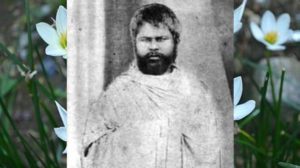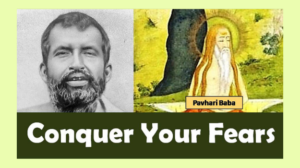“We are all divine. In each is a conscious spirit that survives the body and the mind and is a part of the Absolute. The goal is to manifest this divinity within. Do this either by work, worship or philosophy, – by one, or more, and be free.”
– Swami Vivekananda
Why be good? In a world where greed, corruption and dishonesty dominate, what will we gain by being good? Why must we do good to others, when being selfish is a whole lot easier and often more rewarding?
These questions are immensely pertinent, especially in the times that we live. So if you ever desired to know the answer, here is a powerful explanation that will not disappoint!
The answer comes from Swami Vivekananda, one of the greatest teachers of Advaita Vedanta and a sage who had realized his own soul. It was given in response to a question posed by a disciple, over a 100 years ago.

However, before we proceed to his answer, let us first visit some key ideas, that will make it easier to understand Vivekananda’s point-of-view:
Contrary to what modern biologists tell us, there is a purpose which governs our existence. The highest aim of life, of knowledge, of work, of all religions and spiritual paths is one, and that is self-realization – to discover our true identity, to know who we really our, to uncover our Atman or Soul.
Within each of us lies this divine soul, the source of all goodness, whose presence often goes undetected, because it is obscured by our ego, selfishness, greed and other base instincts, which form a hard shell around it.
The goal of life then, is to crack open this shell and attain a direct perception of our Soul and its infinite qualities. Because the soul is an indivisible part of God Himself, to attain a vision of our soul, is to see God – an event often described as gaining enlightenment.
This state of enlightenment (also known as salvation or Samadhi) is a point where all questions, doubts, fears and worries cease; when we become aware of the One changeless existence behind this ever-changing creation of life and death, joy and sorrow – an existence called God – an infinite and eternal ocean of pure knowledge, consciousness and bliss; as described by the Sanskrit words Sat, Chit and Ananda.
Consciously or unconsciously, whether we wish it or not, all of the struggles of life are taking us down this path of God-realization, towards revealing more and more of the divinity that lies within each of us.
This is a slow process, which takes many life-times to unfold. There are ways however, of speeding it up, and one of these is by being good, as Swami Vivekananda explains below.
It is through repeated acts of kindness, goodness and selflessness that we can chip away at the shell of impurities that confines our soul, and let our consciousness evolve from a lower state, where we are aware of only our own selves and our needs; to a higher state of Universal Consciousness (called God), where we see the whole world as One – as an unbroken extension of our own individual self.
The following conversation with Swami Vivekananda, was recorded by his disciple, Sharat Chandra Chakravarty. It took place at the Belur Math, in Calcutta, in 1898. (Source: Complete Works of Swami Vivekananda, Volume 7)
Why Should We Be Good?
“A tremendous stream is flowing towards the ocean, carrying little bits of straw on it. You and I, are like these little straws carried in mad currents, towards that ocean of Perfection with God. We may struggle to go back, or float against the current and play all sorts of pranks, but in the long run we must go and join this great ocean of Life and Bliss.”
– Swami Vivekananda
Disciple: Sir, what is the necessity at all for doing good to others?
Swami Vivekananda: Well, it is necessary for one’s own good. We become forgetful of the ego when we think of the body as dedicated to the service of others — the body with which, most complacently, we identify the ego. And in the long run comes the consciousness of disembodiness (freedom from being aware only of our own selves and our needs).
The more intently you think of the well-being of others, the more oblivious of (your own) self you become. In this way, as your heart gradually gets purified by work, you will come to feel the truth that your own Self (Soul) is pervading all beings and all things.
Thus it is, that doing good to others, constitutes a way, a means of revealing one’s own Self or Atman (Soul), which is the highest aim of all disciplines and all spiritual paths.
Being good is a spiritual practice, a discipline for God-realisation through self-realization. Exactly the same goal can also be attained by following other paths of knowledge (Jnâna), devotion (Bhakti), work for the sake of others (Karma) and so on.
(The above conversation has been supplemented by additional words in order to bring out a fuller meaning. For the complete unedited conversation please see Complete Works of Swami Vivekananda, Volume 7)
Thus it is, that the rewards of goodness accrue on the spiritual plane. Being good, may not necessarily result in material gains, but it does lead to permanent spiritual gains. Selfishness on the other hand, may accrue immediate benefits on the temporary material plane, but on the everlasting spiritual plane, it causes us to move away from the light and towards darkness.
“All that is good is a reflection of the Soul. When that reflection is less manifested it is called darkness or evil, and when it is more manifested it is called light or goodness. That is all. Good and evil are only a question of the degree by which the Soul is more manifested or less.”
– Swami Vivekananda








